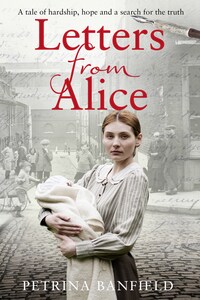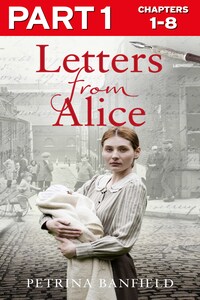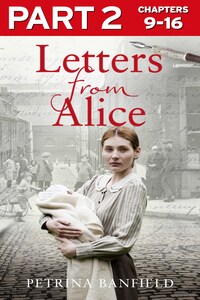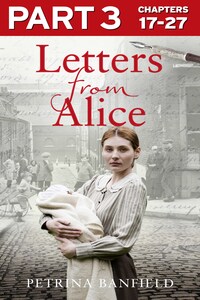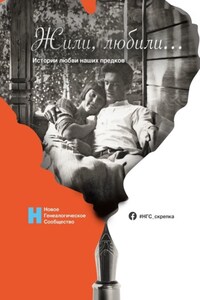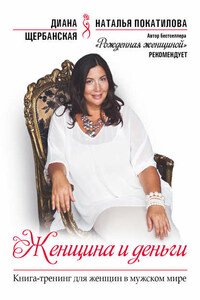HarperElement
An imprint of HarperCollinsPublishers
1 London Bridge Street
London SE1 9GF
www.harpercollins.co.uk
This edition published by HarperElement 2018
FIRST EDITION
© Petrina Banfield 2018
Cover layout design © HarperCollinsPublishers Ltd 2018
Cover image © Jeff Cottenden (posed by model); Hawkins/Topical Press Agency/Getty Images (street scene); Shutterstock.com (all other images)
A catalogue record of this book is available from the British Library
Petrina Banfield asserts the moral right to be identified as the author of this work
All rights reserved under International and Pan-American Copyright Conventions. By payment of the required fees, you have been granted the nonexclusive, non-transferable right to access and read the text of this e-book on screen. No part of this text may be reproduced, transmitted, downloaded, decompiled, reverse engineered, or stored in or introduced into any information storage retrieval system, in any form or by any means, whether electronic or mechanical, now known or hereinafter invented, without the express written permission of HarperCollins e-books.
Find out about HarperCollins and the environment at
www.harpercollins.co.uk/green
Source ISBN: 9780008264703
Ebook Edition © August 2018 ISBN: 9780008264710
Version: 2018-06-21
I was thirteen years old when I first discovered that my father spent his childhood in care. Until then he had never spoken to me about his past and, as children are so adept at doing, I somehow picked up that it was a subject to be tiptoed around, without ever having been told. The truth came out one Sunday afternoon after I plucked up the courage to ask for the names of my paternal grandparents, so that I could complete a genealogy project for school.
Perhaps he felt I’d reached an age of understanding because after a moment’s hesitation he told me that he knew very little about his parents, who had died long before I was born. Even this snippet of information was fascinating to me and I listened eagerly as he told me about the grandmother I’d never met – a petite Irish woman who had experienced too much pain and not enough love. By the age of twenty-five she had given birth to five children.
The shadow cast by childhood trauma stretched far into the future though, and in 1941 three of her children were taken into care, including my father and his twin brother – the youngest, at six months old.
Ever since hearing my father’s story I’ve been captivated by the idea of the corporate parent; society waiting with a safety net to cradle those most in need. For as long as I can remember, I’ve wanted to be part of that narrative. I finally applied to become a foster carer in 2006.
On my initial ‘Skills to Foster’ training course, the tutor told us that three fates awaited unwanted children of the distant past: death by exposure, prostitution or Christian adoption. We learned that homeless children and orphans in Britain were first ‘boarded out’ with foster carers in the latter part of the nineteenth century and that hospital almoners were the forerunners of modern social workers. But it was only in 2014, in trying to reassemble the scattered fragments of my father’s childhood puzzle, that I learned more about the almoners’ remarkable work.
I knew that Dad suffered with severe eczema as a child (he was separated from his twin at the age of five, his weeping wounds perhaps a physical manifestation of his sense of loss) and spent prolonged periods of time in hospital in London at some time during the Second World War, so I visited the London Metropolitan Archives (LMA) and began my search there.
Not really knowing where to start, I put in a request for old files from the Royal Free Hospital and its associated hostels in London. Within half an hour, several boxes had arrived in the reading room. Excitedly, I started going through the first one and, beneath the envelopes filled with receipts and manila files tied up with string, I found a smaller box containing almoners’ reports from the 1920s.
As I worked my way through the dusty papers I read about girls ‘very young, not more than sixteen or seventeen years old’, who had ‘fallen into trouble’ as a result of living in conditions that were ‘past belief … involving very grave and unusual risks of infection’. As well as being pregnant, homeless and ‘turned adrift’ by their families, some of the poor girls were in agony as a result of a double infection of syphilis and gonorrhoea.
